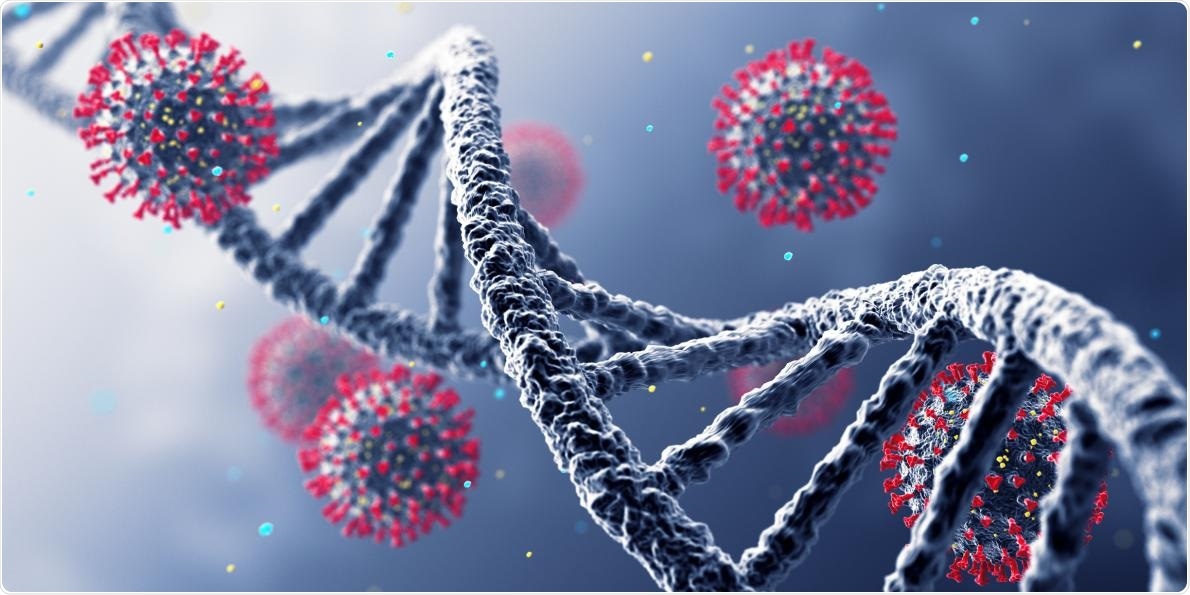A total of 16 novel genetic variations linked to severe COVID-19 have been discovered, including ones that affect blood coagulation, immunological response, and inflammation severity.

Image Credit: BlackJack3D via Getty Images.
According to researchers, these discoveries will serve as a road map for future endeavors, paving the way for new fields of study focused with pinpoint precision on potential new drugs and diagnostics.
Sequencing genomes
The genomes of 7,491 patients from 224 intensive care units in the United Kingdom were sequenced by researchers from the GenOMICC (Genetics of Susceptibility and Mortality in Critical Care) consortium—a global cooperation to investigate genetics in critical illness—headed by the University of Edinburgh in association with Genomics England.
Their DNA was compared to that of 48,400 individuals who did not have COVID-19, as well as participants in Genomics England’s 100,000 Genomes Project and 1,630 people who had moderate COVID.
The researchers were able to develop an accurate map and uncover genetic variation connected to COVID-19 severity by determining the complete genome sequence of all patients in the research. When comparing the DNA of the ICU patients to the DNA of the other groups, the researchers discovered significant changes in 16 genes.
Our latest findings point to specific molecular targets in critical Covid-19. These results explain why some people develop life-threatening Covid-19, while others get no symptoms at all. But more importantly, this gives us a deep understanding of the process of disease and is a big step forward in finding more effective treatments.”
Kenneth Baillie, Professor and Consultant, Critical Care Medicine, University of Edinburgh
Professor Kenneth Baillie, who is also the chief investigator of GenOMICC adds, “It is now true to say that we understand the mechanisms of Covid better than the other syndromes we treat in intensive care in normal times—sepsis, flu, and other forms of critical illness. Covid-19 is showing us the way to tackle those problems in the future.”
Gene variants
Researchers also verified the involvement of seven additional genetic variants previously linked to severe COVID-19 and found by the same team in previous investigations.
The researchers discovered that a single gene mutation disrupting interferon alpha-10, a crucial messenger molecule in immune system communication, was enough to raise a patient’s risk of severe disease.
This emphasizes the gene’s importance in the immune system and implies that treating patients with interferon—proteins generated by immune cells to protect against viruses—might aid disease management in the initial stages.
Variations in genes that govern the amounts of Factor 8, a key component of blood clotting, were similarly linked to serious illness in COVID-19, according to the study.
This might explain some of the coagulation problems reported in severe cases of COVID-19. The most frequent kind of hemophilia is caused by the Factor 8 gene.
As COVID-19 evolves, we need to focus on reducing the number of people getting seriously ill and being hospitalized. Through our whole genome sequencing research, we’ve discovered novel gene variants that predispose people to severe illness—which now offer a route to new tests and treatments, to help protect the public and the NHS from this virus.”
Sir Mark Caulfield, Study Co-Author and Professor, Queen Mary University of London
Sir Mark Caulfield was a chief scientist at Genomics England.
Dr Rich Scott, Chief Medical Officer from Genomics England noted, “Strategically, we’re at a point where genomic science is becoming an integral part of the national infrastructure in routine healthcare. It represents a major leap forward in our understanding of how our genetic makeup influences severe illness with COVID-19.”
“All those involved in the study went to great efforts to engage with all communities within the UK—including groups that have historically been under-represented in medical studies. The inclusive element of our work has generated meaningful results for everyone in the country,” added Dr Rich Scott.
Consortium
GenOMICC was founded in 2015 as an open, worldwide collaboration of intensive care specialists focused on better understanding genetic factors that influence outcomes in intensive care from infections including SARS, flu, and sepsis.
The University of Edinburgh leads the group, which has been focusing on COVID-19 research since 2020 in partnership with Genomics England and in collaboration with NHS Lothian, the Intensive Care National Audit and Research Centre (ICNARC), and Queen Mary University of London. The recent findings were published in the journal Nature.
In 2014, the 100,000 Genomes Project was launched to sequence 100,000 genomes from patients with uncommon diseases or cancer. The project was finished in 2018 and opened the ground for NHS England to launch a new genomic medicine service, which would improve patient care by bringing enhanced diagnostics and individualized therapies to the NHS.
Clinical research has been vital in our fight against COVID-19 and the UK’s innovation is enabling us to transform our health service and ensure the NHS is able to deliver world-class care. This research is an important step forward in better understanding how COVID-19 impacts certain people, allowing us to take the necessary action to protect the most vulnerable and save lives.”
Lord Kamall, Minister for Innovation, Department of Health and Social Care
Source:
Journal reference:
Kousathanas, A., et al. (2022) Whole genome sequencing reveals host factors underlying critical Covid-19. Nature. doi.org/10.1038/s41586-022-04576-6.